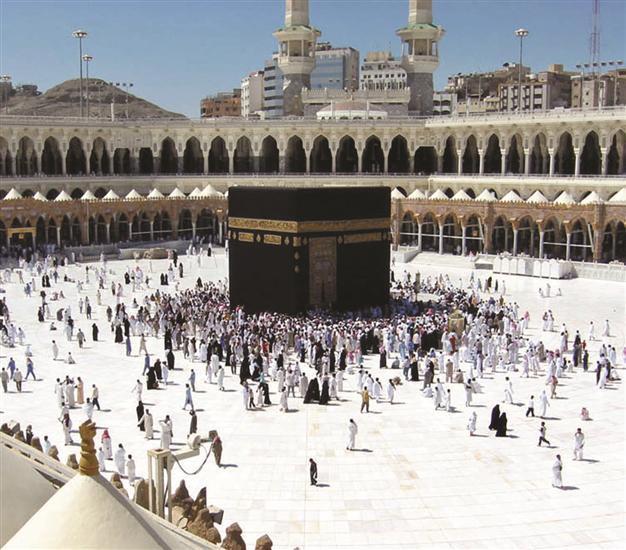Hajj in focus amid MERS virus fears
GENEVA - Agence France-Presse

This year’s hajj pilgrimage will occur in October amid MERS fears.
Virologists are casting a worried eye on this year’s Islamic hajj pilgrimage to Saudi Arabia as they struggle with the enigmatic, deadly virus known as MERS which is striking hardest in the kingdom.Little is known about the new pathogen, beyond the fact that it can be lethal by causing respiratory problems, pneumonia and kidney failure. It can be transmitted between humans, but unlike its cousin, the SARS virus, which sparked a scare a decade ago, it does not seem very contagious.
Even so, for any respiratory virus the mass gathering of the hajj provides a perfect opportunity to first spread at the two holiest Muslim shrines in the cities of Mecca and Medina, and then travel around the globe at jet speed as pilgrims return home.
The 2012 hajj drew 3.1 million people and this year’s event likewise occurs in October, as the northern hemisphere slides into the season for coughs and sneezes.
Travel restrictions
As the fight for knowledge unfolds behind lab doors, the WHO is urging nations to monitor respiratory infections, especially among patients returning from the Middle East, but has held off calling for travel restrictions.
“This is really a new phenomenon that we’re dealing with,” Keiji Fukuda, WHO assistant director general for health security, told the International Conference on Prevention and Infection Control in Geneva this week.
“We don’t know what the potential is yet, based on the information we have, for sustained human-to-human transmission. We don’t know what the full geographic extent of this virus is right now.”
So far, MERS has essentially been found in nations with health services capable of tracing and tackling such diseases. But the hajj draws a broad spectrum of Muslims, including from poor countries which struggle to cope even with commonplace diseases.
“We don’t know if the disease is there right now. They don’t have surveillance,” Saudi Arabia’s deputy health minister, Ziad Memish, told AFP on the sidelines of the Geneva conference.
Health experts give praise to Saudi authorities for beefing up vigilance for infectious diseases over the years.
They also note that the hajj has successfully ridden out two previous viral episodes in the past decade; SARS in 2003 and H1N1 influenza in 2009, although the difference now is that Saudi Arabia is the apparent hotbed of MERS.
















